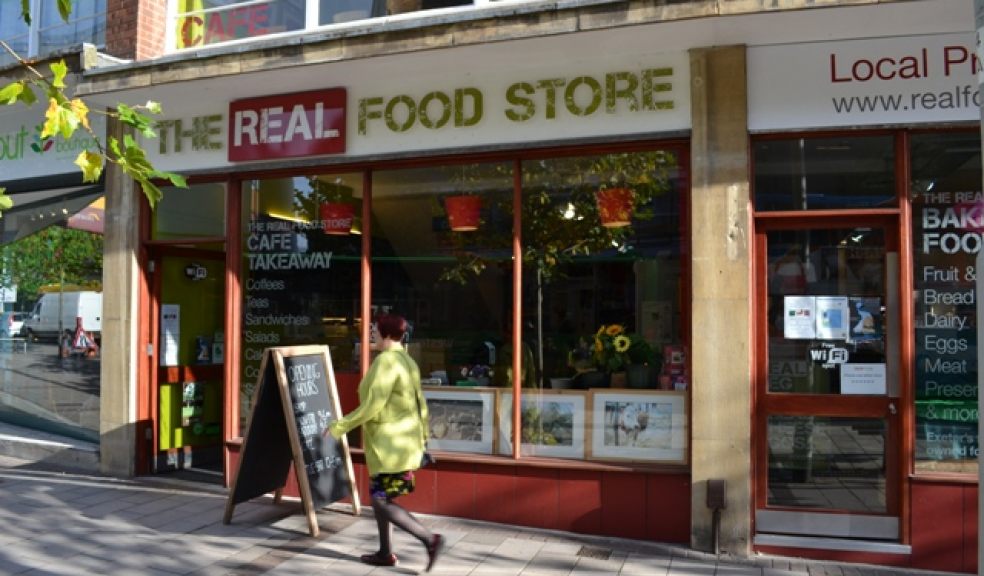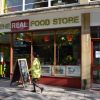
Exeter joins the top table on good food
Exeter has been recognised for its pioneering work to promote healthy and sustainable food and has become the 40th member of the Sustainable Food Cities Network, one of the fastest growing social movements in the UK today.
Exeter joins cities such as Belfast, Cardiff, Edinburgh and London that have made exemplary progress in improving access to good food and in tackling key issues like food poverty and waste.
Exeter Community Food Network - which is a growing partnership of organisations that includes the City Council, businesses and community groups - will be sharing Exeter’s expertise and achievements and learning from other pioneers as part of a national good food movement.
Tom Andrews, Director of Sustainable Food Cities said: “From health issues such as obesity, diabetes and food poverty through to environmental issues such as climate change and waste and economic issues such as the disappearance of family farms and traditional high street food stores, there is a growing recognition that food not only lies at the heart of some of the biggest challenges facing us today, but is also a vital part of the solution.
"A growing number of leading cities have recognised that it is only by working together that we can hope to tackle these challenges and that is exactly what Exeter Community Food Network are doing.
"As soon as you scratch the surface, you start to realise how much innovative food work is going on in the city. From the amazing St Sidwell’s Community Centre and Real Food Store to the inspiring work of the Devon and Cornwall Food Association, it will be great for other members of the Sustainable Food Cities Network to be able to learn from all that Exeter is doing.”
Martyn Goss, Convenor of the Exeter Community Food Network and Director of Church and Society said: “This is really encouraging news for the city. It is a strong recognition of how local communities can engage in providing their own resources and develop better resilience for the future. By working together we achieve more and build a more sustainable Exeter.”
Dr Virginia Pearson, Director of Public Health, Devon County Council, added: "Healthy and sustainable food - growing, cooking and eating - is important in keeping us healthy as individuals and communities. The Sustainable Food Cities model brings together organisations that are passionate about creating a healthy and sustainable food system in Exeter. It's a great way to celebrate their work and make it go even further."
St Sidwell's Community Centre aims to help improve physical health, emotional well-being and quality of life of local individuals and groups, mainly in inner-city Exeter, by providing a wide range of centre-based activities, learning opportunities and support services. It is based in an Anglican parish church and includes a community café, kitchen and garden with a high emphasis on participation. It runs food and health activities and provides rooms for many other schemes such as a cultural café, on-line courses and food preparation classes. http://stsidwells.org.uk/
The Real Food Store is a community-owned business (Community Benefit Society) with over 300 members which provides a shop, café, take-away and bakery sourcing all its food from local and sustainable producers and growers. It is one of the largest community-owned food enterprises in the country and grew from Transition Exeter as a project especially to link local consumers with producers, and to support the local food economy. http://www.realfoodexeter.co.uk/
The Devon & Cornwall Food Association (Exeter) is a food rescue initiative which takes good, in-date food destined for landfill or incineration and redistributes it to community groups and charities. It thus alleviates food poverty and reduces food waste and in 2014 saved over 26,000 kilos of food worth more than £80,000 to recipient organisations. Operating with some 40 volunteers DCFA has daily collections from retailers and also takes surplus food from farmers, food processors and transport companies. http://www.devonandcornwallfoodassociation.org/
The Sustainable Food Cities programme is led by the Soil Association in partnership with Food Matters and Sustain. It is funded by the Esmee Fairbairn Foundation and supports cities to transform food culture. More than 50 urban areas across the UK are expected to join the Sustainable Food Cities Network by the end of the three-year programme in 2016.




















